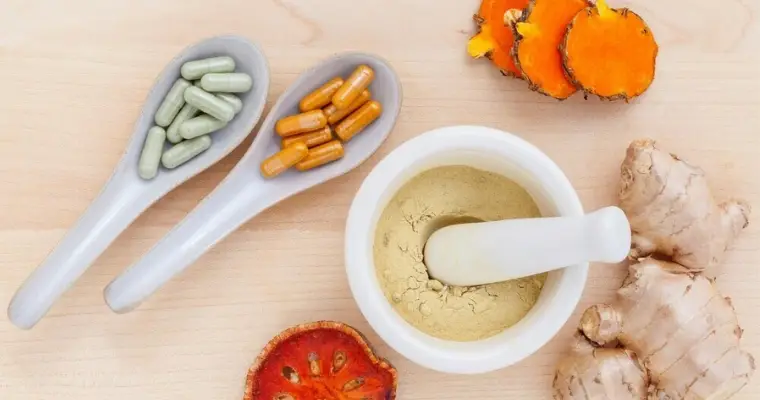Plant Vitamins and Supplements

Exploring the Flourishing World of Plant-Based Living
The shift toward plant-based living goes beyond what we eat; it encompasses what we consume for health, including plant vitamins and supplements.
With increasing awareness of the environmental and ethical impacts of our choices, plant-based supplements are gaining popularity.
Discover why they’re trending and how they can elevate your wellness journey.
The Rise of Plant-Based Supplements
Benefits of Plant-Based Supplements
Plant-based supplements offer numerous advantages for health-conscious consumers. They align with the principles of clean, green, and ethical living. Key benefits include:
- Sustainability: These supplements support environmental preservation by using renewable resources.
- Health Benefits: Derived from natural sources like algae, fruits, vegetables, and grains, they’re free from synthetic additives.
- Inclusivity: Suitable for vegans and individuals with dietary restrictions, plant-based supplements cater to diverse lifestyles.
Choosing these supplements is not only better for you but also contributes to a healthier earth.
What Are Plant-Based Supplements Made From?
Plant-based supplements are crafted from whole food sources without animal-derived ingredients. Popular ingredients include:
- Spirulina: A protein-rich algae packed with antioxidants.
- Turmeric: A natural anti-inflammatory with a history of medicinal use.
- Aloe Vera: Known for its digestive and skin health benefits.
These supplements retain their natural co-factors, helping your body absorb and utilize nutrients effectively—just as it would with whole foods.
The Power of Organic Whole Food Supplements
Why Organic Matters
Organic whole food plant vitamins and supplements are sourced from pesticide-free environments, ensuring purity and potency. Their benefits include:
- A full spectrum of nutrients as they exist in nature.
- Better nutrient bioavailability compared to synthetic supplements.
- Support for a cleaner ecosystem through sustainable farming practices.
Success Stories with Organic Supplements
The impact of organic supplements is undeniable. Here are some real-life examples:
- Energy Boost: A friend who felt sluggish for years regained vitality by incorporating spirulina and maca root into her diet.
- Digestive Health: Many report improved gut health with aloe vera supplements.
- Joint Support: Turmeric’s anti-inflammatory properties have provided relief for countless individuals.
By focusing on organic, whole food-based options, you’re choosing supplements that work in harmony with your body.
Why Less Is More
Avoiding Nutrient Overload
While supplements can be beneficial, excessive intake can harm your health. Key points to consider:
- Toxicity Risks: Fat-soluble vitamins, like A, D, E, and K, can accumulate to dangerous levels.
- Imbalances: Overloading on one nutrient can inhibit the absorption of others.
Focus on a balanced WFPB diet first and use supplements to fill in specific gaps.
Minimalist Supplementation for Optimal Health
Adopting a minimalist approach allows your body to regulate its nutrient needs naturally. Start with:
- A high-quality multivitamin to cover the basics.
- Targeted supplements for specific concerns, like omega-3s for brain health or probiotics for digestion.
Listen to your body and adjust as needed for long-term wellness.


Synthetics vs. Naturals
Comparing Synthetic and Natural Supplements
Synthetic supplements are popular for their affordability and consistency, but they often lack the co-factors found in natural alternatives. Key differences include:
- Absorption: Natural supplements often provide superior bioavailability.
- Additional Benefits: Plant-based options contain phytonutrients and enzymes that enhance overall health.
Why Choose Natural?
Natural supplements, derived from plants, offer a holistic approach to wellness. For example:
- Turmeric: Provides anti-inflammatory benefits and antioxidant support.
- Elderberry: Boosts immunity with a range of beneficial compounds.
Choose natural, plant-based supplements that align with your health routine with eco-friendly and ethical practices.
Exploring Herbal and Flower Remedies
Unlocking the Power of Herbs
Herbal plant vitamins and supplements have been used for centuries to promote health and well-being. Popular options include:
- Valerian Root: Supports restful sleep and reduces anxiety.
- Chamomile: Eases digestive issues and promotes relaxation.
- Ashwagandha: Helps combat stress and improve energy levels.
Starting Your Herbal Journey
Incorporating herbs into your routine can be simple:
- Begin with herbal teas like chamomile or peppermint.
- Use turmeric or ginger in cooking for added health benefits.
- Explore tinctures and capsules for convenience.
Always choose sustainably sourced herbs to ensure quality and efficacy.
Identifying Quality Brands
How to Spot Reliable Supplement Brands
To choose the best supplements, look for:
- Transparency: Brands should disclose ingredient sources and manufacturing processes.
- Certifications: Seek products labeled USDA Organic, Non-GMO, or Certified Vegan.
- Third-Party Testing: This ensures safety and efficacy.
- Sustainability: Ethical sourcing and eco-friendly packaging reflect a commitment to the earth.
The Importance of Research
Research Before You Buy
Making informed choices is key to optimizing your health. Follow these steps:
- Read Clinical Studies: Look for peer-reviewed research on supplements.
- Consult Professionals: Talk to your doctor or a registered dietitian.
- Check Reviews: See what other users say about the product.
Final Thoughts on Plant Vitamins and Supplements
In conclusion, your health journey is personal and should be guided by knowledge, not trends.
Embrace plant-based supplements as part of a holistic approach to wellness but always prioritize research and listen to your body.
Until next time, stay informed and empowered in your pursuit of health and sustainability.
Please, if you are looking for support on your wellness journey feel free to contact us directly if you have any questions.
Subscribe now to get a user-friendly “Get Started” guide featuring 12 tips for transitioning to a WFPB diet.
Cheers,
Plantaful Life Team
Disclaimer: The information shared in this blog post and on our website is for educational and informational purposes only. We are here to inspire and support you on your plant-based journey. However, always prioritize your health and consult with your trusted healthcare provider for personalized advice. By using our website, you acknowledge and agree that you have read and understood this medical disclaimer. Additionally, you acknowledge the significance of seeking professional medical advice for your specific health needs.
References:
Your Health is Wealth – Plantaful Life
How to Get All Your Vitamins and Minerals From Plant-based Meals – Center for Nutrition Studies